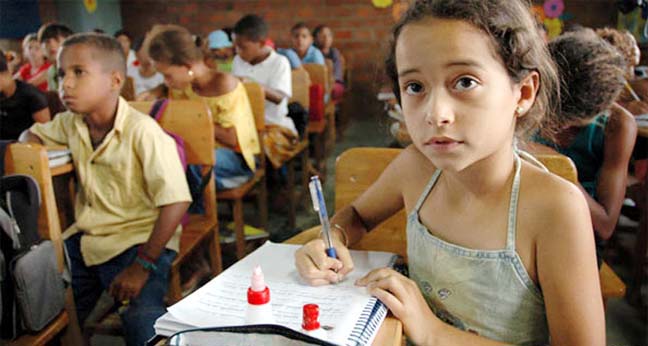
Bruce D Price :
When you study education, one of the most depressing revelations is the extent to which the Education Establishment has abandoned its main responsibility.
Our elite educators come up with one pretext after another for not doing much in the way of education. Finally, you have this vast landscape full of almost nothing, at least nothing academic, intellectual, or scholarly.
This is wildly counterintuitive. You don’t expect to look across the educational landscape and see an empty wasteland, although a famous professor did write a book in 1953 with that exact title, “Educational Wastelands-the Retreat from Learning in our Public Schools.” How do they justify this retreat? Basically, they throw out one basic lie: “Our children can’t handle that.” Sometimes they say, “Our children don’t need that.” The constant theme is that children are limited, unable to learn anything difficult, and lacking in intellectual curiosity.
Our Education Establishment justifies having dumb schools by insisting that the children themselves are dumb.
Our top educators seem to think that kids are born ignorant, and we shouldn’t disturb the natural order of things. Obviously, this is a self-serving cop-out by people more interested in social engineering (read: leveling) than in educating anyone. The problem now is that these silly sophistries have permeated every corner of the country. Adults look at children and think, they’re just kids, we can’t expect much.
We need to turn this thing around 180°. Start with the premise that children can learn far more than now, probably ten times more.
Let’s do a blue-sky exploration of what is possible. Pick any three serious subjects at random. Here are the three that first came to my mind: steam engines, the Olympics, nuclear physics.
Children could and should learn about these things. But it’s safe to predict that if you dared to suggest this to our top educators, they would faint from the impossibility of teaching such substantial information to a child. They haven’t tried in many decades, therefore it can’t be done.
I submit that it’s feasible (maybe easy given the power of Google) for any serious teacher to assemble 1000 facts, quotations, photographs, videos, Hollywood film clips, maps and other engaging material on each subject. During a typical class, the teacher would discuss the most interesting 30-40 of these items to the children. Explain and connect. In a month the teacher would cover the thousand pieces of information. At that point the children would be brainiacs on the subject.
Does someone object you couldn’t find 1000 interesting bits about steam engines? Nonsense. You could find 1000 bits about a single steam engine now operating. What a fascinating subject. How do they work? When did they first show up? How are they used in trains, ships, cars, and even toys? You can teach history through the development and spread of the steam engine and the steam locomotive. (I think Google Images has something like 500 pictures just under the search term “train wrecks.”)
The Olympics? There are no doubt 1000 hours of film available from the last 20 Olympics. Probably a million photographs. Probably a billion words. If you can’t make the Olympics interesting, quit. (Did you know, for example, that every four years the best design companies in the world compete to create entirely new graphics and signage for the next Olympics?)
Nuclear energy? You can show pictures of nuclear facilities around the planet, interiors and exteriors. Why are they so huge? What are the scientists doing there? We can show nuclear explosions, gas chamber experiments, famous people who worked on this. You skip the math and show everything else. Even for younger kids, you could talk about the atom, nuclear reactions, radiation, and what happened to that reactor in Japan.
My thesis is you can teach anything to anybody. You teach it at whatever level the class can handle, perhaps a little higher but never lower. Let’s think of the spectators at a football game, that is, average adults. It would be possible to engage and inform them on almost any subject. Whatever you can teach to them, you can teach to children. Who wouldn’t enjoy learning interesting things about nuclear energy, the Olympics, and steam engines?
Everything I’ve said is obvious. The only reason it sounds ambitious is that the Education Establishment shut down all rational thought on the subject years ago. They start from the quackery that zero is normal: zero facts, zero teaching, zero learning. Zero is normal for them.
It’s not normal for human beings at any point in their growth. What’s normal is that the brain focuses on interesting things and wants to learn more about them.

